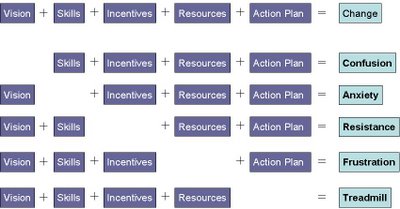I have just submitted my first assignment for the MA course. I suspect there is unlikely to be another assignment as easy as this one, since no research was required! The idea was to write a 1000 opening summary for a reflective professional development assignment that looked at my journey to the MA course in terms of:
- previous study
- in-service training in school/college
- professional role
- other experience/interests
- present focus
The summary was to show evidence of planning, analysis and reflection, as well as an explanation as to how the MA course fits in with career plans, etc.
Since my route to the course has been somewhat haphazard, it was tricky to cover the journey within the 1000 word limit (that's my story, anyway!). Later we will provide updates. I presume the idea will be to indicate how the MA is measuring up to initial expectations and if/how what we learn is impacting our lives, both professional and personal. Since my interest in the course was mainly due to a module called the Nature of Knowledge that has since been discontinued, this is a bit of a sore point at the moment! What also niggled me somewhat was the fact that, in spite of assurances that the course was not purely aimed at people in the formal education sector, the wording of the point about in-service training (see my second bullet point above) would indicate otherwise. However, it isn't all doom and gloom, I will take from the course what I can get, hoping to put some structure around what I already know as well as to fill in the gaps and learn more along the way. In my class of about 23 people, most of us middle aged, the wealth of experience represented has got to be worth sticking around for!
By way of coincidence,
David Warlick's potted history of his teaching career made me smile today. It's an upbeat anecdote and gives me context for someone I respect. Perhaps he's been given a similar assignment! I'll spare you the full text of mine: 1000 words makes for a lot of text, but I couldn't help contrasting his post with a section from my assigment that read:
A student counsellor conducted a battery of tests and advised me that I showed an inordinately high aptitude for teaching, but almost no aptitude for working with children. Sadly, it seems it was not as evident to him then as it is to me now that, ergo, I should teach adults. I was not even aware that adults undertook any learning. With more knowledgeable guidance, my career path might have been more direct than it has proved.
As it happened, I taught drama part-time at a private school of performing arts during my final year at college in order to meet overheads, and turned out to be far from inept at it. At the time of the tests, though, I was adamant that I didn't want to have anything to do with children. With hindsight I realise that having a modicum of intelligence enabled me to manipulate the results to reflect exactly that. Just goes to show...
In spite of the student counsellor's lack of insight/foresight, I wound up in the world of adult learning at the age of 24 anyway. So I had taken 8 year detour, and picked up a lot interesting skills and experiences along the way. And without the necessary piece of paper in the form of a B degree to back me up, I was forced to do things hard way once I got started: building relationships with people, networking, word-of-mouth, busting a gut to ensure that the quality of my materials were beyond question... and my presentations memorable, providing follow-up evaluations at no extra cost. That too, served me well, I reckon. So no harm, no foul.
When all's said and done I think it turned out okay. Except when people ask me (or my husband, or my kids) what I do for a living. The short answer gives rise to looks of puzzlement, and the longer explanation causes eyes to glaze over! Ah well.



